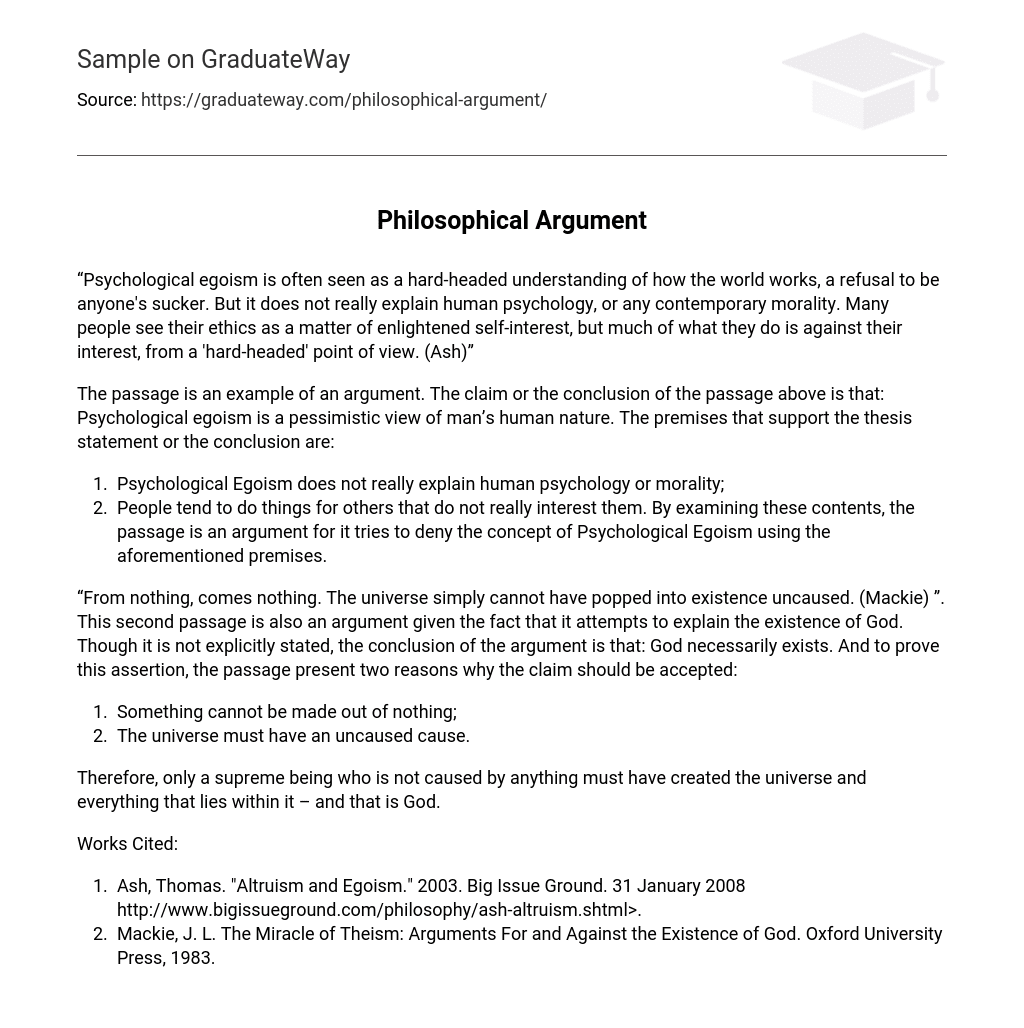“Psychological egoism is often seen as a hard-headed understanding of how the world works, a refusal to be anyone’s sucker. But it does not really explain human psychology, or any contemporary morality. Many people see their ethics as a matter of enlightened self-interest, but much of what they do is against their interest, from a ‘hard-headed’ point of view. (Ash)”
The passage is an example of an argument. The claim or the conclusion of the passage above is that: Psychological egoism is a pessimistic view of man’s human nature. The premises that support the thesis statement or the conclusion are:
- Psychological Egoism does not really explain human psychology or morality;
- People tend to do things for others that do not really interest them. By examining these contents, the passage is an argument for it tries to deny the concept of Psychological Egoism using the aforementioned premises.
“From nothing, comes nothing. The universe simply cannot have popped into existence uncaused. (Mackie) ”. This second passage is also an argument given the fact that it attempts to explain the existence of God. Though it is not explicitly stated, the conclusion of the argument is that: God necessarily exists. And to prove this assertion, the passage present two reasons why the claim should be accepted:
- Something cannot be made out of nothing;
- The universe must have an uncaused cause.
Therefore, only a supreme being who is not caused by anything must have created the universe and everything that lies within it – and that is God.
Works Cited:
- Ash, Thomas. “Altruism and Egoism.” 2003. Big Issue Ground. 31 January 2008 http://www.bigissueground.com/philosophy/ash-altruism.shtml>.
- Mackie, J. L. The Miracle of Theism: Arguments For and Against the Existence of God. Oxford University Press, 1983.





